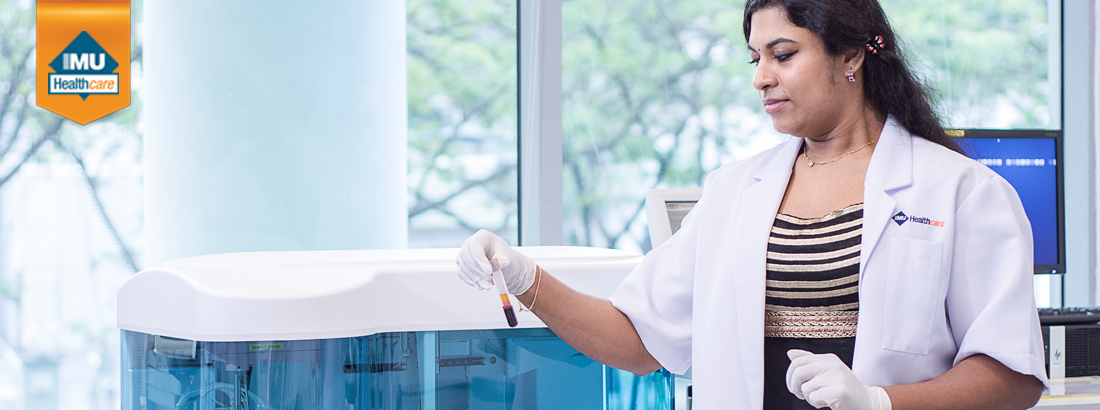As we move on to the second half of the year, have you managed to achieve a quarter of your 2017 new year’s resolutions? Is taking care of your health and the health of your loved ones on track for this year? One of the best things we can do to ensure our health in tip-top condition is to go for health screening. Often times, without screening, it is unlikely for us to know if there is anything wrong before it is too late. According to Ministry of Health, healthcare spending per capita in Malaysia has increased two and a half times in 17 years, from RM641 in 1997 to RM1,626 in 2014, and it had outpaced economic growth, especially due to the rise in non-communicable diseases, an ageing population, and technological advances. Regular screening is an important part of preventive healthcare whereby we can assess and know the level of our health as well as check if our vaccination is up-to-date. This concept of “prevention is better than cure” will not only help to save money in the long run, but it can even save our lives through early detection. Additionally, being up-to-date with our vaccination record is important as it tells us if we are protected against vaccine-preventable diseases. It can help us prevent getting and spreading serious diseases such as Hepatitis B and Meningitis. Immunisations are not only for children as protection from childhood vaccines can lose its effectiveness over time. What is a health screening?  Health screening is another name for procedures that provide us with a snapshot of our current health. Results from health screening provide us with opportunities to make healthy changes in our lives. Screenings help detect problems early when symptoms are not yet present. With early detection and treatment, the risk of serious complications due to any disease can be lowered and the chances of improving outcomes are increased. There are many factors that impact our health such as our age, gender, current state of health, family history, and lifestyle choices. Screening packages are usually designed according to age groups or for specific purposes, such as pre-marital, employment, and education enrolment.
Health screening is another name for procedures that provide us with a snapshot of our current health. Results from health screening provide us with opportunities to make healthy changes in our lives. Screenings help detect problems early when symptoms are not yet present. With early detection and treatment, the risk of serious complications due to any disease can be lowered and the chances of improving outcomes are increased. There are many factors that impact our health such as our age, gender, current state of health, family history, and lifestyle choices. Screening packages are usually designed according to age groups or for specific purposes, such as pre-marital, employment, and education enrolment.
While there are many options available, it is best to consult with your doctor on which tests are best for your specific condition and needs. Personalised and individualised screenings are definitely more encouraged, especially if you know of a specific family health problem.
Common problems typically included in health screenings are for high blood pressure, high blood cholesterol, blood sugar level, liver and kidney function as well as gender/age specific tests such as pap smear and mammogram for women. These tests can help you identify if you have any health conditions and may be suitable for different individuals, for example:
- Individuals aged 18 and above should have their blood pressure measured every two years. A reading of above normal (120/80 mm Hg) should be monitored more frequently.
- Individuals aged 30 and above with hypertesion or a body mass index (BMI) above 25 or positive family history should have their fasting blood glucose level checked annually.
- Individuals aged 20 and above should have their total cholesterol, low-density lipoprotein (LDL) and high-density lipoprotein (HDL) cholesterol, and triglyceride levels tested every 5 years (more frequently, as age increase).
- Colorectal cancer. Individuals aged 50 and above should check with their doctor about testing for colorectal cancer; annual stool for blood or 10-yearly endoscopic examination.
How do I get screened?  Getting screened is an easy enough process. All you have to do is to schedule an appointment with your healthcare provider. The screening usually takes no more than half a day. Once the tests are done, the results are usually out within the same day and your results will be reviewed via a consultation with a doctor. Red flags in test results would enable you to discuss with the doctor the solutions and steps to improve them for a healthier you. If there are no issues, you can walk away with a peace of mind. Is vaccination part of screening? As adults, we sometimes forget the importance of keeping our vaccination records up-to-date, however, this is something we should not neglect. Vaccines are important to us as we may be at risk for serious diseases that are preventable, and should protect ourselves and our loved ones by lowering the chances of them spreading. Moreover, most of us have busy lives and many responsibilities, therefore, we cannot afford the time and money to fall sick.
Getting screened is an easy enough process. All you have to do is to schedule an appointment with your healthcare provider. The screening usually takes no more than half a day. Once the tests are done, the results are usually out within the same day and your results will be reviewed via a consultation with a doctor. Red flags in test results would enable you to discuss with the doctor the solutions and steps to improve them for a healthier you. If there are no issues, you can walk away with a peace of mind. Is vaccination part of screening? As adults, we sometimes forget the importance of keeping our vaccination records up-to-date, however, this is something we should not neglect. Vaccines are important to us as we may be at risk for serious diseases that are preventable, and should protect ourselves and our loved ones by lowering the chances of them spreading. Moreover, most of us have busy lives and many responsibilities, therefore, we cannot afford the time and money to fall sick.
Generally, vaccinations that are available for adults are such as the flu vaccine, HPV vaccine, Tdap vaccine, and pneumococcal vaccine.
Vaccinations may sometimes not be part of screening packages, however, they are an important part of the preventive measures we can take. Ask for them if they are not included in your health screening package. Results from screenings can highlight the vaccines that are active and up-to-date as well as those that need a “top-up”. Take charge of your health for a healthier future 
 Health screenings are essential as they involve tests that detects diseases and addresses potential risks, which may not produce early warning. In other words, screening acts as an early detection of diseases and conditions before you have symptoms.
Health screenings are essential as they involve tests that detects diseases and addresses potential risks, which may not produce early warning. In other words, screening acts as an early detection of diseases and conditions before you have symptoms.
So, take charge of your health through regular screenings as early detection allows diagnosis, management, and even reversal of illnesses. It will eventually help us save a lot of time, money, and heartache due to detecting an illness too late.
Include health screenings and vaccinations as important steps in your wellness plan. Remember, prevention is better than cure, and with good health, we can conquer anything we set our minds to. References: http://www.freemalaysiatoday.com/category/nation/2017/03/16/health-spending-per-person-more-than-doubles-in-17-years/ http://www.mayoclinic.org/healthy-lifestyle/nutrition-and-healthy-eating/expert-blog/recommended-health-screenings/bgp-20093267 http://infomed.com.my/vaccination-in-malaysia http://www.mlive.com/news/index.ssf/2014/12/how_do_vaccinations_work_the_s.html https://www.cdc.gov/vaccines/hcp/conversations/downloads/vacsafe-understand-color-office.pdf http://www.star2.com/health/wellness/2017/03/12/a-case-for-pneumococcal-vaccines/ https://today.mims.com/topic/malaysia-s-moh-says-health-spending-per-person-has-doubled-in-17-years This article is brought to you by IMU Healthcare.









